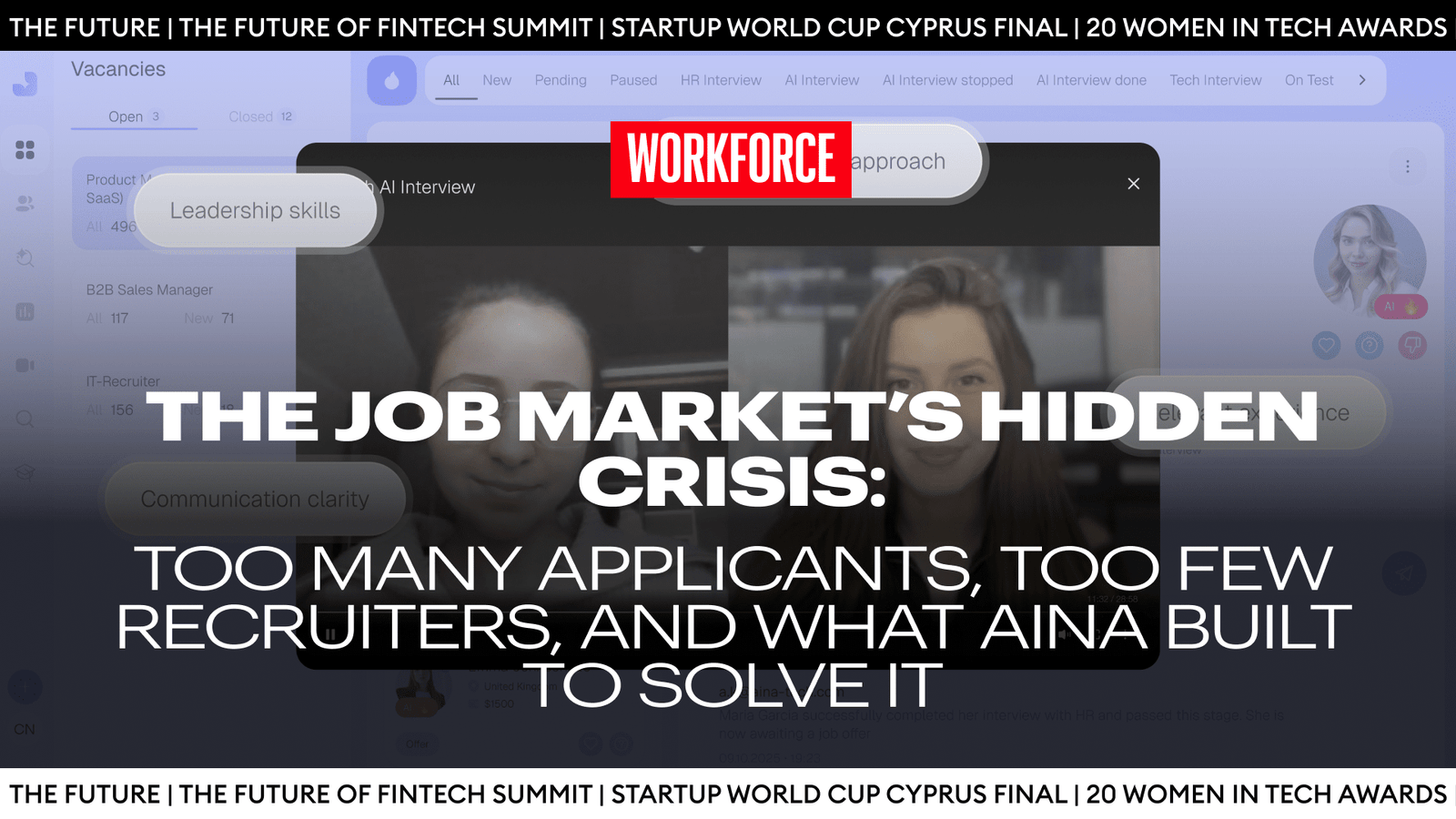Y Combinator, the Silicon Valley accelerator known for launching companies such as Airbnb, Stripe, and OpenAI, has released its latest Requests for Startups (RFS) for the Summer 2025 batch. The list provides a clear signal of where the accelerator believes there are underserved opportunities for high-impact innovation.
For founders in smaller ecosystems like Cyprus, where venture funding and early-stage accelerators remain limited, the RFS offers a window into what one of the world’s most influential startup investors is actively looking to fund now.
Follow THE FUTURE on LinkedIn, Facebook, Instagram, X and Telegram
Below is a summary of the core areas YC is encouraging founders to build in.
Full-Stack AI Companies
Rather than building tools to support existing businesses, YC is looking for startups who use AI to build the businesses themselves. Instead of selling software to law firms, for example, they want to see startups build a law firm that is fully powered by AI. The emphasis here is on replacing legacy services end-to-end using large language models.
Designer-Led Startups
With the rise of no-code tools and accessible AI models, YC believes designers, especially those who have experience in product design, are now in a good position to found their own companies and launch their own lines of products. YC is especially interested in startups where design, where design leads the product from day one, and not just in the engineering part.
Voice AI
LLMs and speech models have seen rapid advancements in recent years. YC believe we are approaching the point when we can create voice agents that are indistinguishable from human callers. It sees major potential in startups that can deploy these technologies across customer service, sales, and healthcare, where high-volume human interaction is a limiting factor.
AI for Scientific Advancement
Scientific tools in fields like chemistry, biology, and materials science remain heavily reliant on slow, manual methods, which is part of the reason these fields have seen limited innovation over the last decades. YC is encouraging startups to apply AI that supports or replaces expensive and time-consuming workflows in research and discovery, from molecule simulation and analysis to lab automation and discovery platforms.
Personal AI Assistants
Despite the rise of productivity apps, most users still complete their tasks manually. YC is looking for companies building agents that don’t just organize or remind their users of their to-do lists, but complete the work itself. This could include AI that responds to emails, completes scheduling, or executes basic web-based tasks on autonomously.
Healthcare AI
Healthcare remains one of the most complex and inefficient industries for both patients and providers, particularly when it comes to administrative processes. YC is looking for startups that can use AI to streamline the operational side of healthcare. That can include automating insurance claims and handling prior authorizations or improving discharge planning. These inefficiencies often lead to higher costs and worse outcomes. YC believes there is a great opportunity in building AI systems that simplify and accelerate these processes at scale.
AI Personal Tutors for Everyone
Education is still largely one-size-fits-all. YC wants to see AI-powered tutors that offer personalized instruction and tools that adjust to how students learn and what they need at any given moment. This isn’t about replacing teachers but making individualized learning available to anyone with internet access, regardless of their economic background or geography.
Software Tools to Make Robots
Robotics remains too hard for most startups to enter, in part because the software stack for building and deploying robots is still quite complex. YC is looking for startups that simplify the process of developing, testing, and deploying robotic systems. This could mean better motion planning tools, more accessible simulation environments, or the infrastructure to manage robots once they’re live. As the cost of hardware continues to fall, YC believes the next generation of robotics companies will be built by teams who make the software side faster and easier to work with.
The Future of Education
We have already mentioned the call for personal tutors. YC is also interested in how education itself can be redesigned. This includes platforms that challenge the traditional classroom model, offer alternative forms of exams and credentialing, or address the mismatch between formal education and employment. The focus is on startups that reconsider both how people learn and how educational outcomes are measured, using new technology.
AI Residential Security
Home security has, for most of the past decades, relied on static sensors and human monitoring. YC sees potential in AI-powered systems that don’t just trigger alarms. Instead, these systems offer real-time, proactive monitoring that can detect suspicious behaviour, understand context, and respond intelligently. The goal is a security layer that adapts, learns, and acts more like a human would, but with greater consistency and accuracy.
AI Voice Assistants for Email
Replying or writing emails is one of the least pleasurable and time-consuming tasks of our day. YC is calling for startups to build AI voice assistants that not only read and summarise messages but also draft and send replies, manage follow-ups, and even schedule. The focus is on reducing the mental load of emails by turning them into a spoken interaction, managed almost entirely by AI.
AI for Personal Finance
Despite the growth in fintech, many consumers still struggle with budgeting, saving, and managing their money day-to-day. YC is encouraging startups that use AI to offer more than one-off tools that are in the market today. Instead, they are interested in personalized, ongoing financial guidance AI assistants. This might include advice on spending, smarter saving recommendations, or financial agents that take small actions automatically on behalf of the user.
Additional Areas of Interest
In addition to these core themes, YC lists a range of other categories it is actively interested in funding:
- AI applied to robotics
- AI models that simulate physical systems
- Defence and security technologies
- Advanced manufacturing and supply chain tools
- Commercial space technologies
- Climate resilience and carbon removal technologies
- Commercial open-source software
- Spatial computing interfaces and platforms
- Vertical SaaS and new ERP systems
- Internal tools spun out into standalone products
- Explainable AI models
- LLMs for automating legacy workflows
- Stablecoin-based financial platforms
- Cancer detection, treatment, and drug discovery
- Foundation models for biology
- Managed healthcare services
- Direct-to-consumer health insurance and service delivery
- Integrated enterprise tools
- Industry-specific, smaller language models
What This Means for Cyprus-Based Startups
While the YC model is targeted at U.S. startups, its reach is increasingly global. Cypriot founders building in AI, deep tech, or vertical SaaS may find that aligning their work with these RFS themes opens the door in the future to one of the most prestigious accelerators in the world.
The full Requests for Startups list is available at ycombinator.com/rfs.













